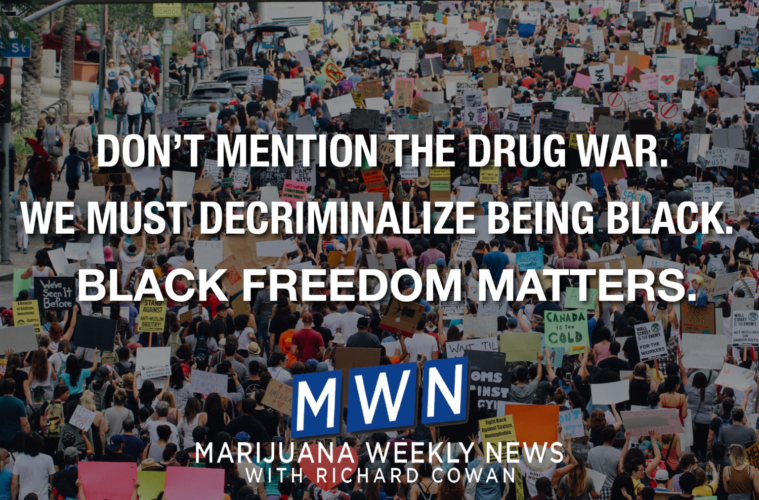I really love Mexico, and having grown up in Texas, I have visited there many times, starting in 1947, when I was seven years old and my parents drove to Mexico City on the then new PanAmerican Highway with me standing up in the backseat. (There were no seatbelts in those days.)
It was much safer then than now, because it was long before the Drug War. In the meantime, 20 years later in 1967, I discovered a certain Mexican agricultural product that could have gotten me life in prison in Texas.
My most recent visit to what is now a metropolitan area with over 20 million people, was in April of 2009, when I was invited to a “debate”on marijuana legalization with a committee of the Mexican Congress. It was both a great honor and great fun. They even put me up in the spectacular Gran Hotel Ciudad de México, where the 2015 James Bond movie “Spectre” began. (My stay was much quieter.)
Outside the committee auditorium there was a media scrum, and it was clear that the Mexican media, like their American counterparts, were simply incredulous. A Gringo in favor of legalizing “mota”??
It was also just assumed that if Mexico were to act unilaterally and legalized marijuana the U.S. would punish Mexico by somehow limiting trade. So why even talk about it?
However, in the next 10 years, everything changed. Canada and California and other states have legalized marijuana, so it was clearly safe for Mexico. Then in October of 2018 the Mexican Supreme Court ruled that the ban on consuming marijuana is unconstitutional.
The court has allowed several extensions in the deadline, but the COVID-19 pandemic has greatly aggravated Mexico’s numerous other problems. Now the Congress is finally looking at not just decriminalizing personal use, but also the formal legalization of retail sales and hemp cultivation.
The Mexican economy was in bad shape before the pandemic, and the drop in industrial and agricultural exports to the U.S., the loss of the hugely important tourism sector, and the drop in remittances from Mexican workers in the U.S., have been devastating.
Mexico has also been burdened by the huge influx of refugees from Central America, who are being detained on the Mexican side of the border. (Refugee camps are also very high risk locations for pandemics, and the Mexican health care system is simply not equipped to handle the burden.)
And then there is the Drug War. While marijuana legalization in several U.S. states has reduced the market for Mexican marijuana, it is still an important part of the supply in Texas and especially the South Eastern states, where it remains an excellent excuse for arresting minorities, and poor whites.
While the Drug War has been devastating to the U.S. criminal justice system, it has been a bloodbath in Mexico. According to a 2018 Congressional Research Service report, “many sources indicate” that about 150,000 intentional homicides since 2006 were organized crime-related.
In addition, over 60,000 people have disappeared.
The sad fact is that the so-called “cartels” now control much of the country, not just contraband. Even the avocado trade. Legalizing marijuana will deprive the gangs of some of their revenue, but it is much too late to hope that legalization will have any meaningful impact on the Drug War and related violence.
However, it would definitely help revive the tourism trade, and it will also make it much easier for poor Mexicans to use it medically, which is even more important than in the U.S. Moreover, Mexico would also have some competitive advantage in developing cannabis/hemp products because of its climate and lower operating costs.
“The proposal as introduced would allow adults 18 and older to possess and cultivate marijuana for personal use. Individuals could grow up to 20 registered plants as long as the total yield doesn’t exceed 480 grams per year. Medical patients could apply to cultivate more than 20 plants, however.
Personal possession would be capped at 28 grams, but possession of up to 200 grams would be decriminalized.
The Mexican Institute of Regulation and Control of Cannabis, a decentralized body established under the measure, would be established and responsible for regulating the market and issuing licenses for marijuana businesses.
The bill proposes a 12 percent tax on cannabis sales, with some revenue going toward a substance misuse treatment fund.
Public consumption would be permissible, except in spaces designated as 100 percent smoke-free. Hemp and CBD would be exempt from regulations that apply to THC products.”
Presumably, the Mexican Congress will act by the end of the year, because the situation is so dire, but it is doubly sad that it has taken so long, and the Mexican people need all the help they can get. Viva Mexico!
Richard Cowan is a former NORML National Director and co-founder of Blue Ribbon Hemp.
Advertising disclosure: We may receive compensation for some of the links in our stories. Thank you for supporting LA Weekly and our advertisers.

